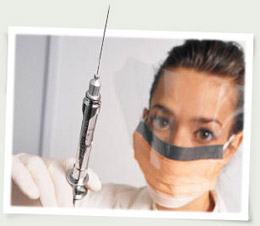
Teeth grinding or clenching is nothing to worry about... is it?
Posted in Health & Wellness on September 16, 2012. Last modified on February 01, 2018. Read disclaimer.
Almost all of us occasionally clench or grind our teeth. For 1 out of 12 American adults and children, however, the problem is so extreme that we're at serious risk of:
- weakening, cracking, chipping and loosening teeth
- damaging our gums, jaw joint and dental work
- developing depression, headaches or ear infections
- compromising our quality of sleep (and, if the grinding is loud enough, that of our sleep partner)
The phenomenon even has a medical name, bruxism.
+ Free Shipping & Returns on Eligible Items.
(*Amazon's Top 100 list updated hourly.)
What causes bruxism?
While bruxism is more common in children (while their teeth are still developing) and tends to decrease with age, possible triggers may include:
- stress (believed to be the leading cause of daytime or awake bruxism)
- micro-arousal during sleep that may occur naturally or as a result of disrupted airway or acid reflux
- smoking or excessive consumption of alcohol
- allergies or ear infection
- misaligned or missing teeth, abnormal bite, or poorly fitted dental implants
- presence of intestinal parasites, particularly in children
- use of stimulants including everything from pseudoephedrine, amphetamines (methamphetamine particularly), and cocaine to large quantities of caffeinated products such as coffee, cola, tea, chocolate, etc.
- use of antidepressant medications (SSRIs)
- anxiety disorders such as obsessive compulsive disorder (OCD)
- neurological problems that contributing to muscle hyperactivity while we sleep
- certain diseases including Huntington's disease and Parkinson's disease
Treatment of bruxism
Since only about 5% of bruxers develop the classic symptoms of excessive teeth grinding and clenching (aching jaw and teeth) and the problem may go away for days or weeks, a dental checkup is how most of us learn that we're bruxers.
If diagnosed early, the cause(s) of bruxism may be addressed, and subsequent painful and expensive dental and jaw joint damage may be avoided. For example, if a person consumes large amounts of caffeine, cutting back may help.
Once bruxism becomes ingrained, however, it is difficult to reverse, so treatment usually involves the use of a dental guard or splint to protect the teeth and jaw from the damage of movement.
The most common treatment is to wear a dental guard or splint at night. While over-the-counter devices (cost approximately $20) are available, most people prefer a custom-made bruxism appliance or night guard, fitted by their dentist (cost approximately $400). Dental night guards should fit snugly but comfortably over the teeth to protect them from wear while allowing the teeth to glide easily back and forth -- this takes strain off the jaw joint. Damaged teeth can be repaired and protected by prosthetic crowns made to withstand grinding or clenching of the teeth.
Bruxism facts
25 million Americans suffer from Bruxism.
The amount of force/pressure exerted with nighttime grinding may be 3-10 times as powerful as when we're eating.
Note: The use of splints and dental guards is somewhat controversial. For some people, these devices act as a stimulus to clench and grind and make the problem worse. It is a good idea to try several different types of splints. It is also important to remember that splints normally lose their effectiveness over time and need to be periodically replaced.
If the use of splints or dental guards is unsuccessful, orthodontic adjustment of the bite pattern (grinding down high spots on teeth, inlays, crowns) may be required.
Behavioral therapy approaches to treating bruxism include:
- trying to identify and resolve possible triggers (see list above)
- learning how to relax your jaw during the day (since nighttime clenching cannot be consciously stopped)
- practicing relaxation or stress-management techniques or seeking consulting, if needed
- receiving specialized types of massage therapy
It is important to seek the help of a dentist promptly if you suspect you have bruxism as it is more easily treated if caught early.

